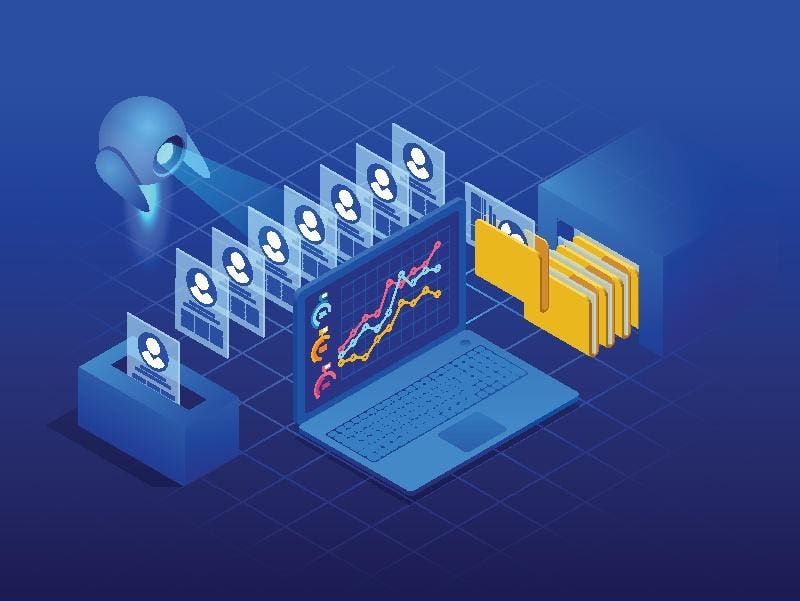The integration of Artificial Intelligence (AI) is revolutionizing Human Resources (HR) practices, shifting the focus from tedious administrative tasks to strategic workforce management and enhanced employee experiences. While human expertise remains paramount, AI augments HR professionals’ capabilities, enabling them to make data-driven decisions, optimize processes, and foster a more engaged and productive workforce. This transformative impact spans the entire employee lifecycle, from recruitment and onboarding to performance management and development.
AI is significantly streamlining the hiring process, particularly for organizations with high-volume recruitment needs. AI-powered tools automate resume screening, match candidates with suitable job openings, and even conduct initial interviews. While concerns about bias in AI-driven recruitment persist, companies are increasingly using AI as an assistive tool to broaden candidate pools and mitigate human biases. These tools can analyze job descriptions and hiring patterns to identify and rectify potential biases, promoting diversity and inclusion within organizations. Beyond simple automation, AI analyzes market data, employee preferences, and company policies to optimize compensation and benefits packages, ensuring they align with both employee expectations and organizational objectives. Furthermore, AI-driven predictive analytics anticipate future workforce needs, identify skill gaps, and predict potential attrition, empowering HR to proactively address staffing challenges and allocate resources effectively.
Beyond recruitment, AI significantly enhances the employee experience, simplifying various processes and providing personalized support. AI streamlines onboarding by automating paperwork, providing tailored training programs, and offering personalized guidance. This ensures new hires quickly integrate into the organization and become productive members of the team. AI-powered tools analyze employee feedback, surveys, and performance data to monitor and enhance engagement, identify potential turnover risks, and recommend actions to improve employee satisfaction and retention. Self-service AI chatbots and virtual assistants further empower employees by providing instant access to HR information, automating routine tasks, and offering support with various inquiries, reducing the administrative burden on HR professionals.
AI also plays a crucial role in optimizing workforce performance and development. By analyzing HR data, AI systems provide insights into employee productivity, identify areas for improvement, and augment performance reviews, enabling more continuous and effective performance management. AI tools offer real-time feedback, facilitate goal setting, and track progress, empowering employees to continuously improve their performance. Personalized learning and development programs are also enhanced through AI, which recommends courses, content, and training based on individual employee roles, skills, and career aspirations. This personalized approach ensures employees develop relevant skills and advance their careers effectively. Furthermore, AI can identify high-potential employees and facilitate succession planning by analyzing performance data, career trajectories, and leadership qualities, ensuring organizations have a pipeline of future leaders.
The implementation of AI in HR not only streamlines processes and improves efficiency but also fosters a more positive and productive work environment. By automating administrative tasks, HR professionals can focus on strategic initiatives, employee engagement, and talent development. AI-powered tools provide employees with personalized support and resources, enhancing their overall experience and enabling them to perform at their best. The ability of AI to analyze data and identify trends allows organizations to make data-driven decisions regarding workforce planning, talent acquisition, and employee development. This data-driven approach ensures that HR strategies align with organizational goals and contribute to overall business success.
The future of HR is undoubtedly intertwined with AI, which promises to further transform the way organizations manage and engage their workforce. As AI technology continues to evolve, we can expect even more sophisticated applications in areas such as talent acquisition, performance management, learning and development, and employee experience. AI-powered tools will continue to automate routine tasks, provide personalized insights, and empower HR professionals to make strategic decisions. This will create a more efficient, engaging, and productive work environment for both employees and employers. The ultimate goal of integrating AI in HR is to create a more human-centric workplace where technology empowers individuals and organizations to thrive.
In conclusion, AI is reshaping the HR landscape, shifting the focus from administrative burdens to strategic workforce management and enhanced employee experiences. From recruitment and onboarding to performance management and development, AI augments HR professionals’ capabilities, enabling them to make data-driven decisions, optimize processes, and foster a more engaged and productive workforce. By embracing AI, organizations can create a more efficient, engaging, and fulfilling work environment for both employees and employers, ultimately driving business success and fostering a thriving workplace culture. The future of HR is undoubtedly interwoven with the continued advancement and integration of AI, promising a more personalized, efficient, and human-centered approach to workforce management.



